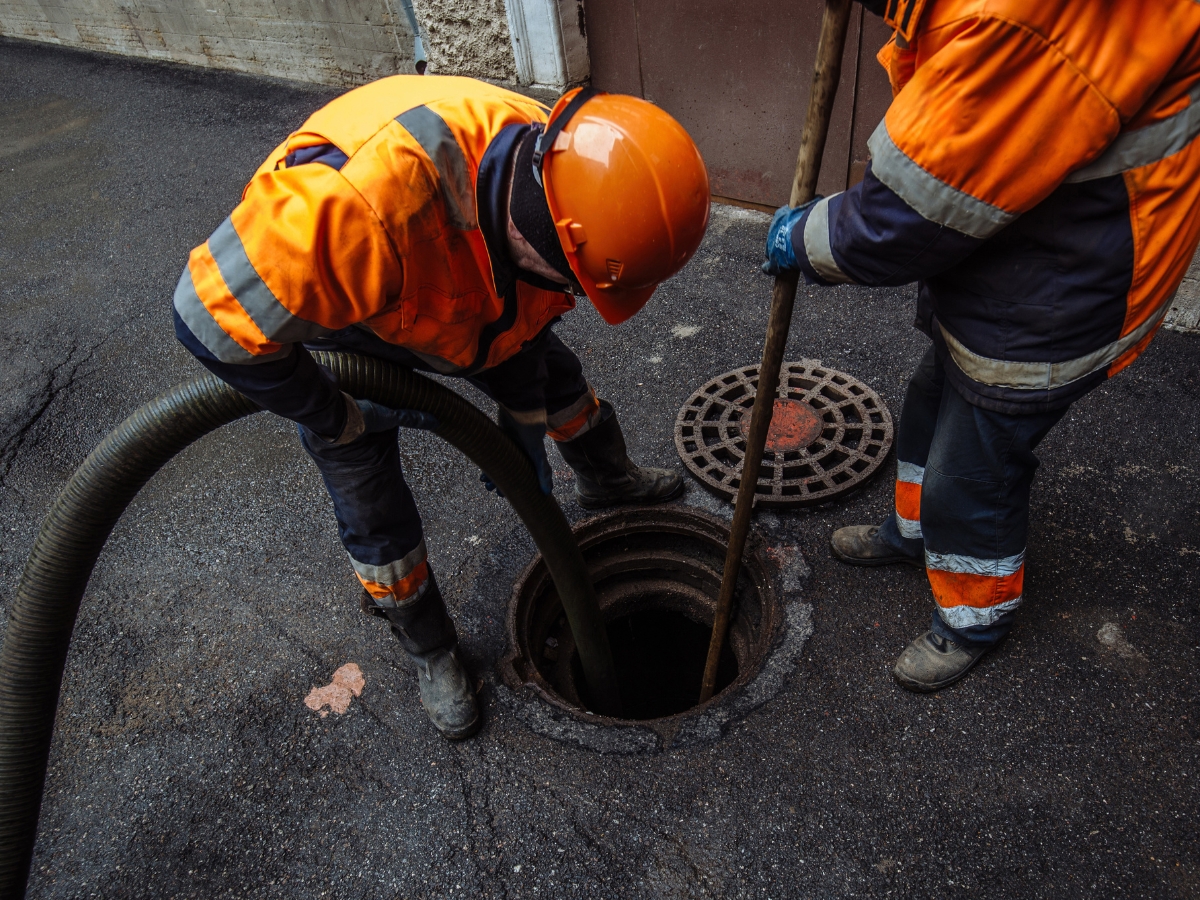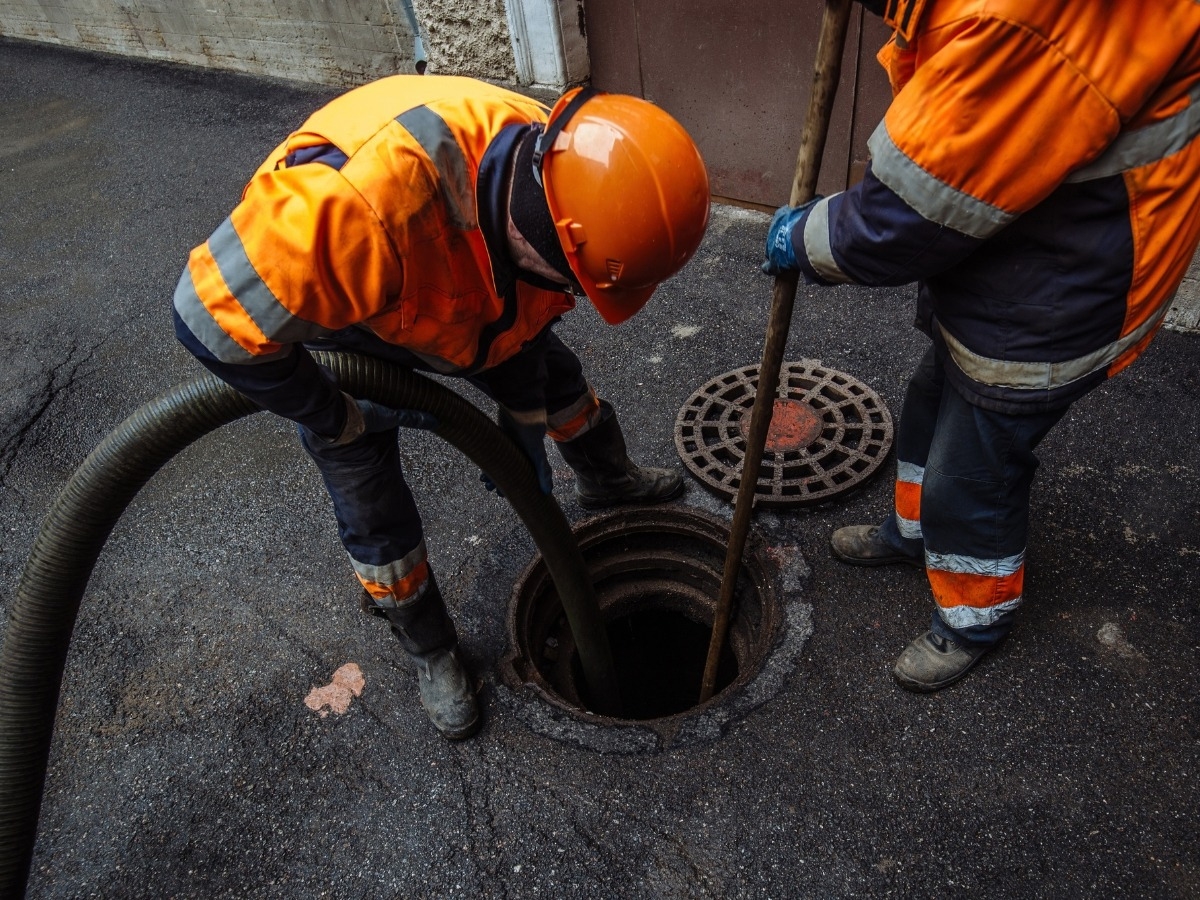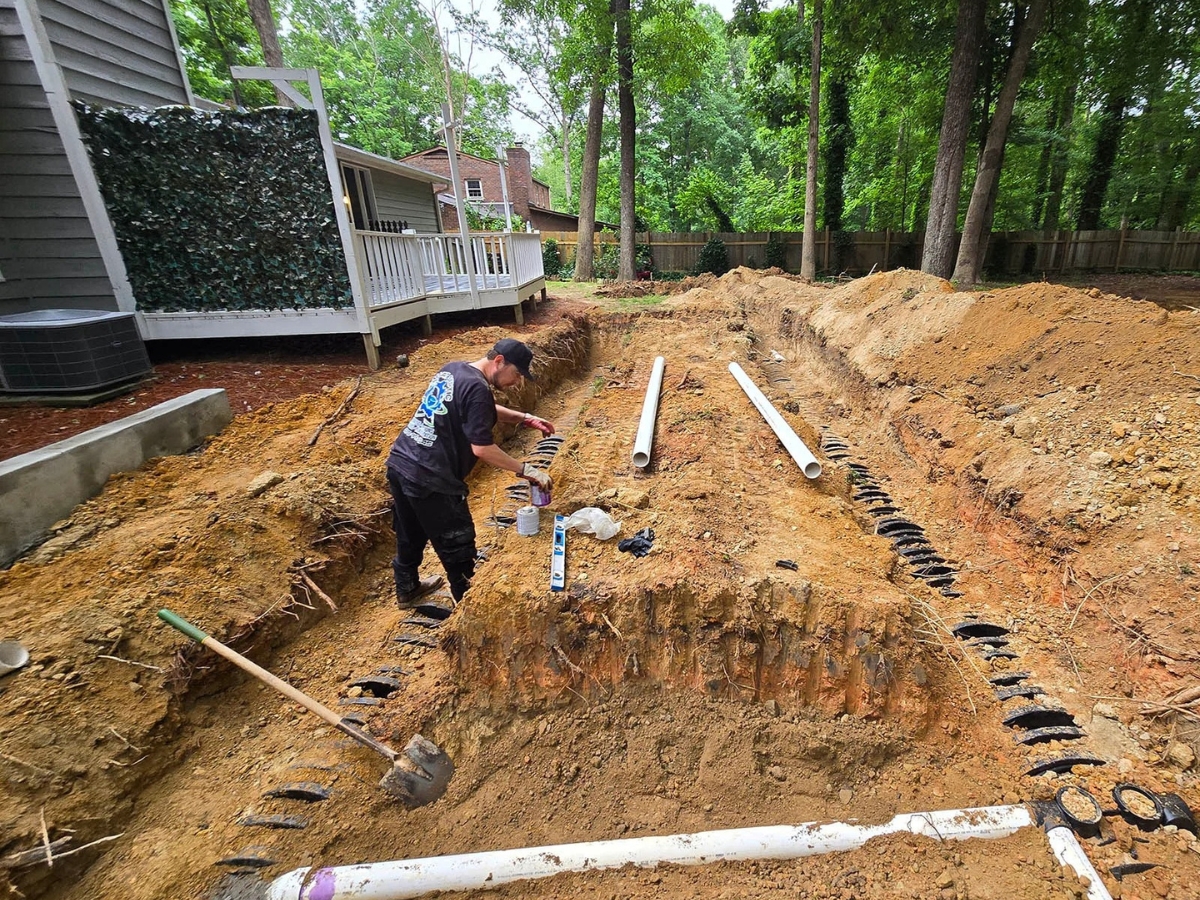Getting your septic system ready for holiday guests is key to avoiding any unwelcome disruptions or messy backups when your loved ones arrive. In Acworth, homeowners can expect wastewater flow to jump by as much as 50 percent during the festive weeks, making proactive septic care a must. This holiday septic tips guide will walk you through scheduling pre-holiday check-ups and pumping, understanding your system’s limits, saving water, avoiding harmful discharges, briefing your guests, spotting trouble signs, knowing who to call in an emergency, and setting up long-term maintenance—all to ensure your celebrations go off without a hitch and you can relax with peace of mind.
Holiday Septic Tips in Acworth, GA for a Stress-Free Season
How to Book Your Pre-Holiday Septic Inspection and Pumping in Acworth
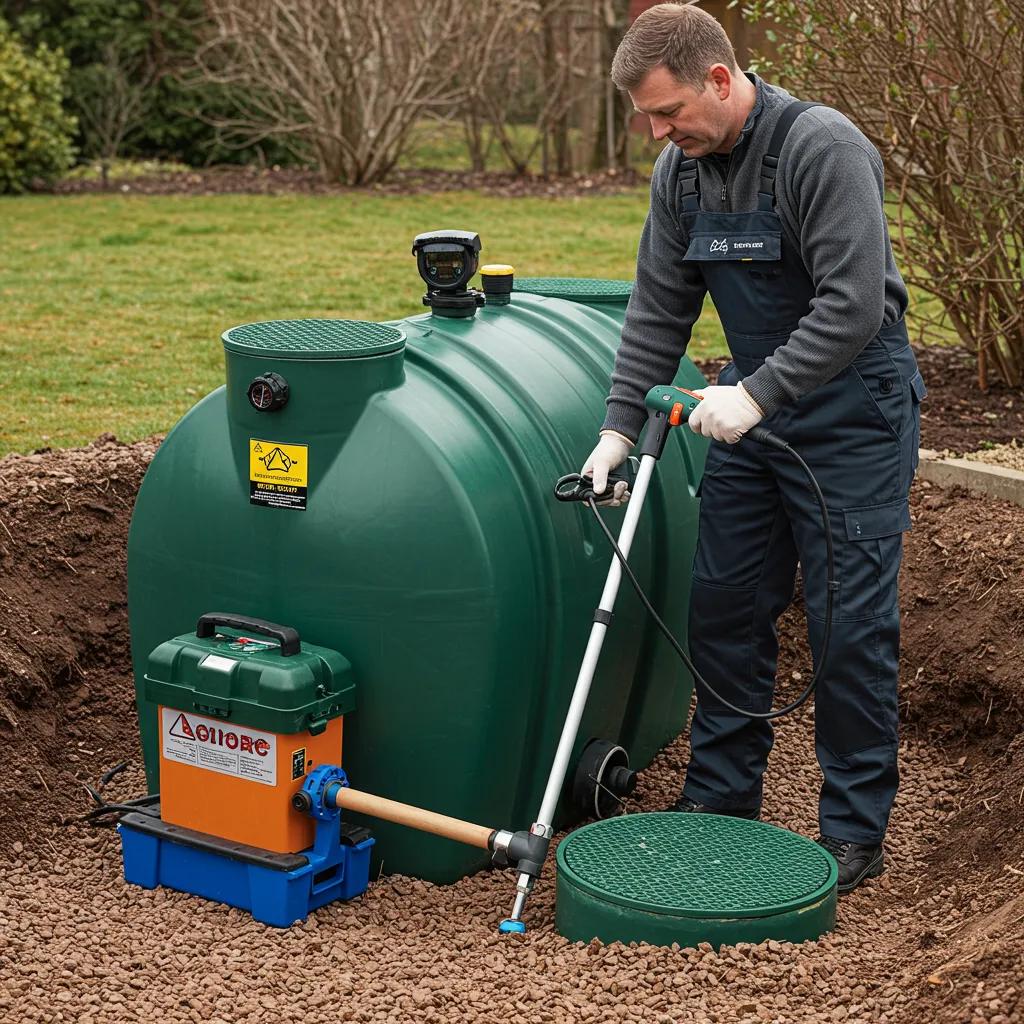
Scheduling a pre-holiday septic inspection and pumping means having a professional take a close look at your tank‘s levels and removing any built-up solids before your guests arrive. A seasoned technician will use inspection cameras to check the scum and sludge layers, then pump out the tank to restore its full capacity. This prevents wastewater from backing up when your system is under heavy holiday use. Smart Septic Pros makes it easy to book appointments, offering clear pricing and flexible times to fit your busy seasonal schedule. Getting this done early significantly lowers the risk of your system getting overloaded and ensures reliable waste disposal throughout your festive gatherings.
Smart Septic Pros suggests booking your inspections about six to eight weeks before major holidays. This gives us plenty of time to spot any minor issues—like uneven sludge buildup or early drain field saturation—before they become big problems. By keeping records of your inspection dates and pumping volumes, Acworth, GA, homeowners build a preventative history that helps guide future maintenance schedules and sidesteps last-minute emergencies.
Why is Pumping Your Septic Tank Crucial Before Holiday Guests Arrive?
Pumping your septic tank removes accumulated solids from the main chamber, preventing the system from becoming overloaded during peak holiday wastewater flow and reducing the chance of backups. When grease, fats, and organic waste settle below the inlet level, they compact into sludge that hinders bacterial breakdown and clogs the distribution pipes. Regular pumping maintains the tank’s effective volume and supports healthy biological digestion, ensuring wastewater flows smoothly to the drain field. This process is vital for preventing costly cleanups and extending the overall life of your system.
How Often Should You Check Your Septic System During the Holiday Season?
Under normal circumstances, you should inspect your septic system every one to two years. However, to catch potential issues early, it’s wise to schedule an inspection at least six weeks before the holiday season kicks off. With more guests using bathrooms, doing more laundry, and increased kitchen activity, the chances of hidden leaks, scum buildup, and drain field saturation go up. Spotting uneven sludge layers or minor pipe blockages early on allows for corrective actions before peak usage. Timely inspections keep your system running optimally and prevent disruptions during your celebrations.
What Are the Red Flags That Your Septic System Needs Immediate Attention?
- Slow drains: If sinks, tubs, or toilets take longer than usual to clear, your tank may be near capacity or a line could be obstructed. One slow fixture can be a local clog, but multiple slow fixtures usually point to a septic issue.
- Gurgling sounds: Toilets or drains that gurgle after flushing or when water is running often indicate trapped air in the lines or wastewater trying to push back toward the home. That back pressure is a common warning sign before a backup.
- Unpleasant odors: A persistent sewage smell around the tank, drain field, or even inside near floor drains suggests venting problems, a failing seal, or excessive tank levels. Odor is an early signal to act before contamination spreads.
- Wet or spongy soil: Soft, damp ground or lush, unusually green patches over the drain field can mean the soil is no longer absorbing effluent properly. Standing water in this area is a red flag for overflow or drain field stress.
- Backups and toilet bubbling: Wastewater backing up into tubs or floor drains, or toilets that bubble when another fixture runs, typically point to a blockage between the house and the tank or a saturated system.
- Alarm activation on pumped systems: If your system has a high-water or pump alarm and it trips, treat it as urgent. Alarms signal levels that can quickly lead to backups if not corrected.
Responding quickly to these warning signs helps prevent environmental hazards and costly repairs.
Optimize Your Septic System for Holiday Guests in Acworth
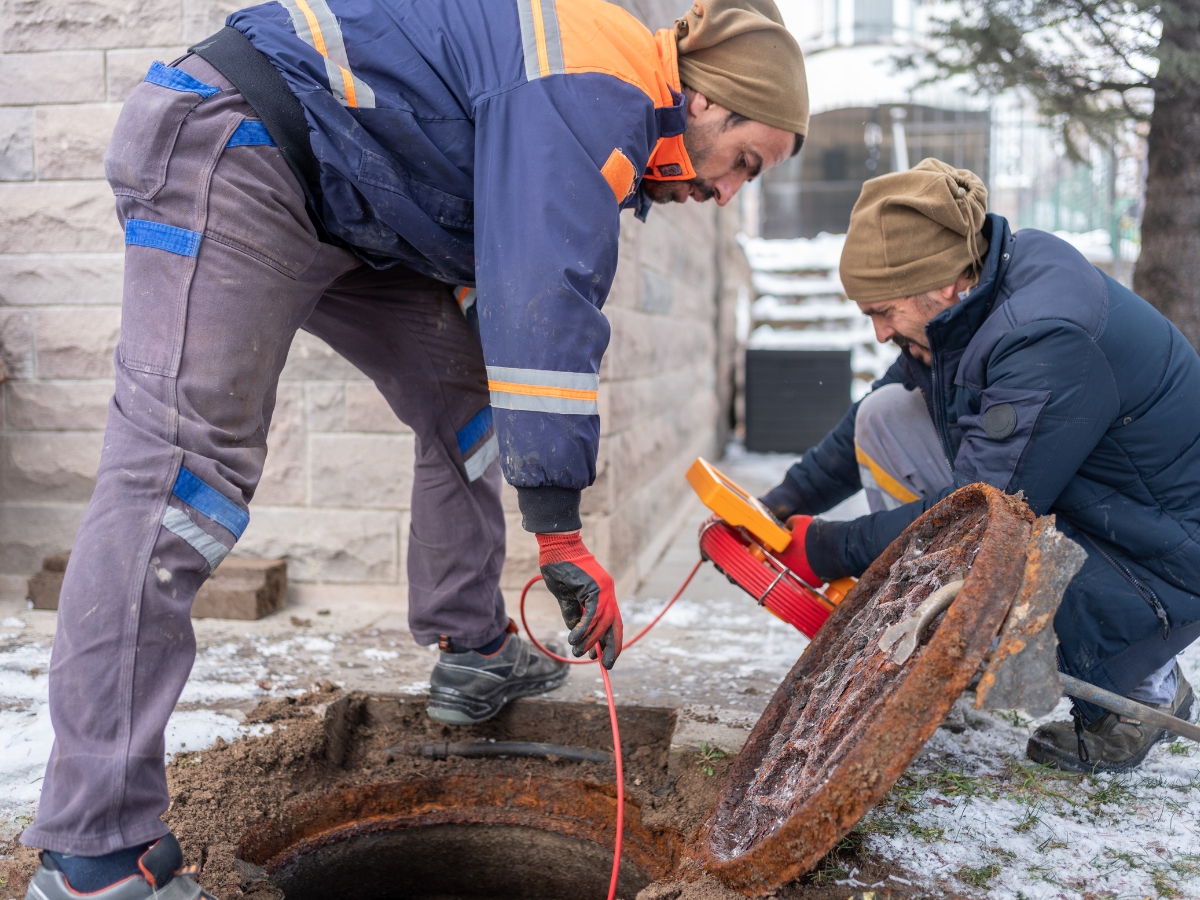
Septic system capacity refers to the maximum amount of wastewater your tank and drain field can handle without failing. Increased holiday wastewater flow puts a direct strain on this limit. When more guests are around, daily water usage can easily double or triple, speeding up sludge accumulation and saturating the drain lines. Understanding how your system is designed—including tank size, drain field area, and soil absorption rate—helps homeowners estimate safe guest loads. Managing capacity through pumping, water conservation, and load calculations ensures your septic system stays within its operational limits.
Here’s a look at key system components and how they affect your holiday capacity:
| Component | Function | Impact on Capacity |
|---|---|---|
| Septic Tank | Holds and separates solids from liquid effluent | Determines how often sludge needs to be removed |
| Distribution Box | Evenly distributes effluent to the drain field | Affects how uniformly the soil absorbs wastewater |
| Drain Field | Absorbs and filters effluent into the surrounding soil | Governs the maximum daily wastewater processing capability |
What is Septic System Capacity, and How Does Increased Wastewater Affect It?
Septic system capacity is the combined volume of the tank and the percolation ability of the drain field, which dictates how much daily wastewater can be processed without causing backups. Excessive inflow from holiday showers, laundry, and dishwashing can saturate the drain field, preventing proper soil filtration. When untreated effluent reaches the surface, it poses health risks and signals that the system is on the verge of failure. Maintaining capacity through timely pumping and controlled water usage preserves the system’s biological balance and prevents overload.
How Much Does Holiday Water Usage Increase Septic System Strain in Acworth?
Holiday gatherings in Acworth, GA can increase daily water usage by 30–50 percent, thanks to extra showers, laundry loads, and dishwashing. Colder weather during holiday celebrations often means longer showers and more hot water use, which can reduce the efficiency of bacteria in the tank. Running dishwashers and washing machines with partial loads also multiplies wastewater volume without optimal cycle efficiency. All these factors combined can speed up sludge buildup and overwhelm the soil’s absorption capabilities, making holiday-specific strategies essential for maintaining system health.
How to Calculate Your Household’s Septic Load During Large Gatherings?
To estimate your septic load, multiply the number of extra guests by the average per-person water usage (around 50–75 gallons per day) and add your household’s regular usage. For instance, five additional guests using 60 gallons each would add 300 gallons to your daily inflow. Compare this total to your tank’s drawdown capacity—typically 1,000–1,500 gallons for a four-bedroom home—to see if pre-holiday pumping is necessary. Adjust your water-saving efforts accordingly to ensure your daily inflow stays below two-thirds of the system’s design capacity, allowing for consistent effluent treatment.
Top Water Conservation Tips for Holiday Guests to Protect Your Septic System
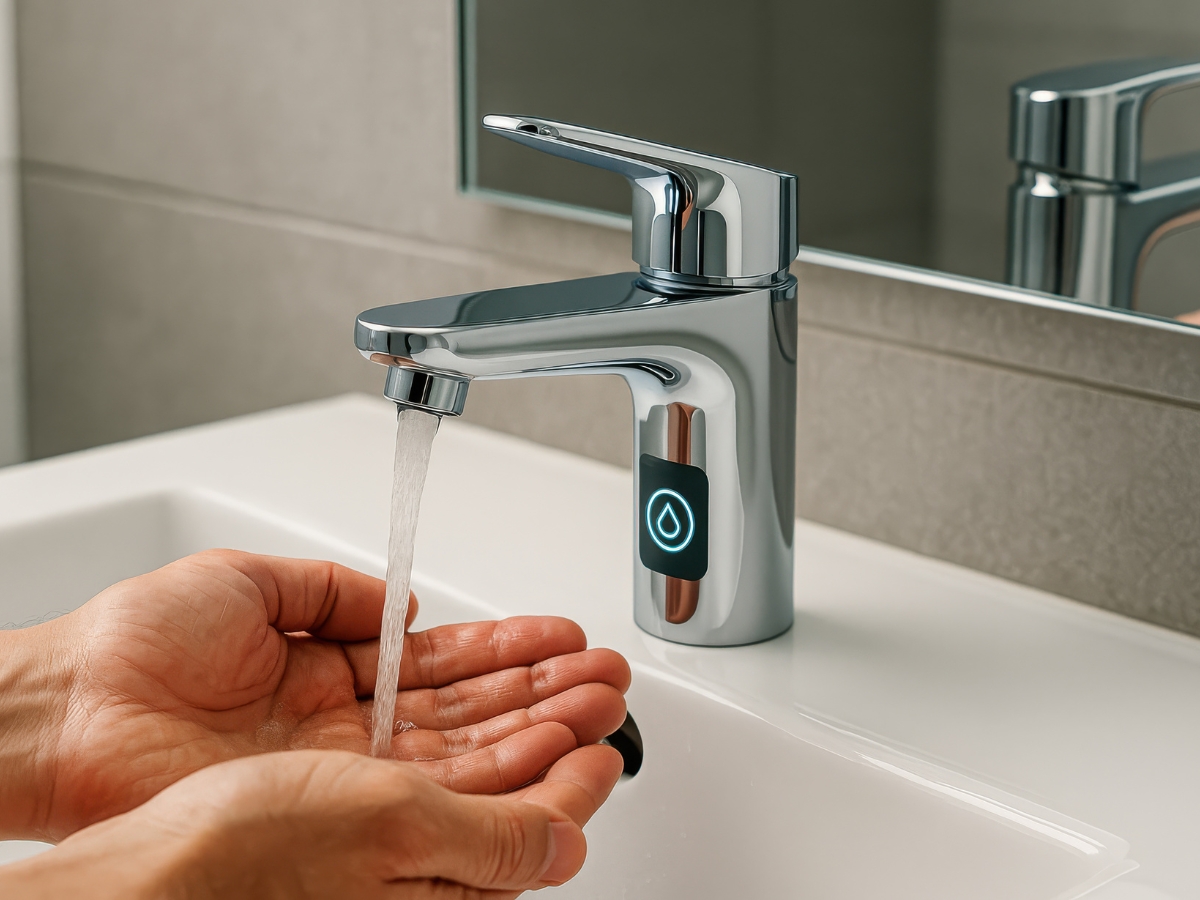
During the holidays, your home’s plumbing works harder than usual with extra showers, dishwashing, and laundry. Practicing smart water conservation helps reduce septic strain, keeping your system efficient even with added guests. These practical holiday septic tips can prevent backups and extend the life of your system without disrupting your holiday routine.
Which Water-Saving Habits Help Prevent Septic System Overload?
Reducing the load on your septic system starts with spacing out water use throughout the day. Encourage guests to take shorter showers—ideally under five minutes—and to avoid running multiple water-heavy appliances at the same time. Stagger dishwashing, laundry, and showers so the tank can process wastewater more evenly. Fixing any leaky faucets or running toilets also prevents unnecessary inflow that can overwhelm the system.
Simple changes like these help maintain the bacterial balance inside your tank, ensuring solid waste breaks down effectively. By keeping water usage steady, you minimize the risk of pushing solids into the drain field, which could lead to clogging or pooling.
How Does Water Conservation Support Septic Health During the Holidays?
When water enters your septic tank too quickly, it shortens the retention time needed for bacteria to properly treat waste. Conserving water allows your system to function as intended, giving microbes enough time to break down solids before the effluent moves into the drain field. This steady process prevents solids from escaping into the soil and clogging the system.
A lower water load also keeps the drain field from becoming overly saturated. When soil stays well-aerated, it filters wastewater more effectively, helping to prevent odors, surface puddling, and slow drainage. These small adjustments can make a big difference during high-use periods like family gatherings and extended holiday stays.
What Appliances and Fixtures Help Save Water in a Busy Household?
Installing water-efficient fixtures is a long-term solution that supports both conservation and septic system health. Low-flow showerheads, which reduce water use to about 1.5 gallons per minute, can save thousands of gallons each year without sacrificing water pressure. High-efficiency washing machines use 20 to 50 percent less water than traditional models, making them ideal for homes that do frequent laundry. Dual-flush toilets also help by using less water for liquid waste and standard volumes for solids.
These upgrades don’t just reduce energy and water bills—they also decrease the amount of wastewater entering your septic tank. When combined with mindful habits, they keep your system balanced even under heavier seasonal demand.
Conserving water during the holidays protects your septic system from overload and keeps it working efficiently throughout the season. By taking shorter showers, repairing leaks, spacing out household chores, and using efficient fixtures, you can prevent backups and costly repairs. These straightforward water conservation steps ensure your home stays comfortable and your septic system healthy while hosting family and friends.
What Should You Avoid Flushing or Pouring Down Your Septic System During Holiday Gatherings?
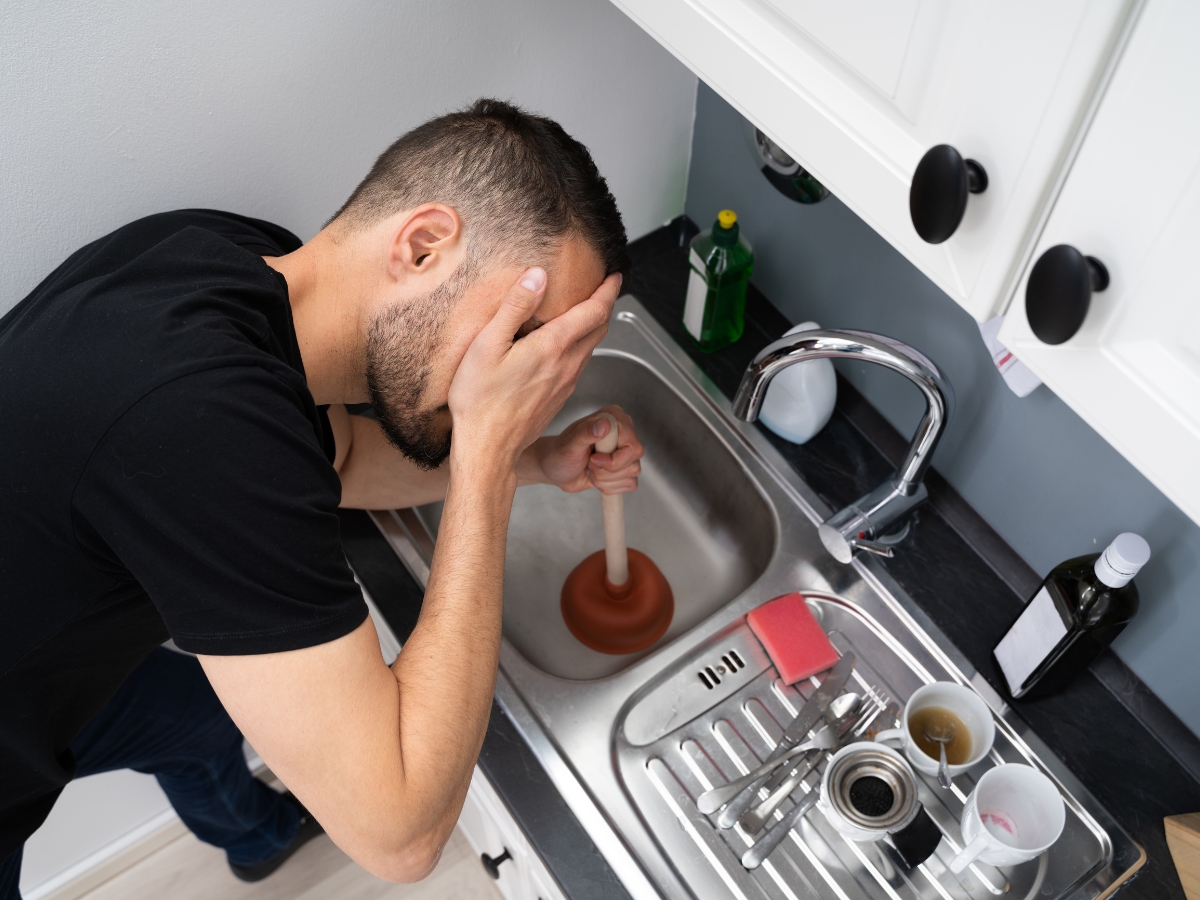
During the holidays, your septic system handles more activity than usual, making it especially important to manage what goes down your drains. Extra guests mean more cooking, cleaning, and flushing, all of which can overload the system if harmful materials enter it. Following a few simple holiday septic tips can help you avoid costly clogs and backups when your home is full.
Why Are Grease, Fats, and Oils Harmful to Septic Tanks?
Grease, fats, and oils are some of the worst substances you can send into a septic system. When these cool, they solidify and form a thick layer that floats on top of the wastewater inside the tank. This layer blocks oxygen from circulating properly, slowing down bacterial activity and preventing effective waste breakdown. Over time, that buildup can travel into your pipes or drain field, causing blockages and uneven water flow.
The result is often slower drainage, foul odors, and, in severe cases, sewage backing up into the home. To prevent this, allow cooking grease to cool and then dispose of it in a sealed container or trash bin instead of the sink. Wiping pans and dishes with paper towels before washing also helps keep fats out of the plumbing.
Which Non-Biodegradable Items Should Guests Never Flush?
Items that don’t break down naturally can cause serious septic damage. Wet wipes, paper towels, cotton swabs, and feminine hygiene products are all non-biodegradable, meaning they won’t decompose inside your tank. These materials accumulate over time, clog pipes, and interfere with the septic system’s natural treatment process.
Even wipes labeled as “flushable” can create blockages because they take too long to break apart. It’s best to place trash bins in every bathroom with clear signage reminding guests to dispose of wipes and hygiene products properly. This simple step prevents backups and keeps your system functioning efficiently throughout the holidays.
How Should You Handle Food Scraps and Cooking Waste Safely?
With holiday cooking in full swing, food scraps and grease can easily overwhelm your septic system. Instead of rinsing leftovers or scraps down the drain, scrape them into a compost bin or trash. Use sink strainers to catch small particles before they reach your pipes. For grease, pour it into a disposable container once cooled and throw it away rather than washing it down.
By managing food waste properly, you reduce the amount of solid matter entering your tank, helping maintain its balance and performance. Keeping drains clear of grease and food debris ensures your system continues processing wastewater efficiently, even during peak use.
Your septic system is designed to handle wastewater, not solid or greasy waste. Avoiding grease, fats, and non-biodegradable materials while managing food scraps responsibly will protect your system from overload during busy holiday weeks. These simple, practical habits help maintain smooth operation, prevent expensive repairs, and ensure your home stays stress-free throughout the season.
How to Educate Your Holiday Guests on Septic-Friendly Practices

The holidays often bring more people and activity into your home, which can put extra stress on your septic system. Educating guests about septic-safe habits helps protect your system while keeping things comfortable and easy for everyone. With a few polite reminders and simple preparations, you can prevent common mistakes that lead to clogs or costly repairs.
What Are Polite Ways to Inform Guests About Septic System Care?
Communicating your septic guidelines doesn’t have to feel awkward. A short, friendly note in the guest bathroom works well, especially one that reads, “Please flush toilet paper only—thank you for helping us protect our septic system.” Providing a small trash bin with a lid gives guests an easy place to dispose of wipes, tissues, and hygiene products.
In the kitchen, you can leave a reminder near the sink about not pouring grease or food scraps down the drain. Framing it as a helpful tip rather than a rule keeps the message positive and encourages cooperation. You might also mention casually during meal prep that your home runs on a septic system and that a little care helps everything run smoothly.
Which Common Guest Habits Can Lead to Septic Issues?
Guests unfamiliar with septic systems may unintentionally cause problems by overusing water or flushing non-biodegradable items. Long showers, back-to-back laundry loads, or running the dishwasher at the same time can overload the tank and slow down the drainage process. Likewise, rinsing greasy pans or coffee grounds into the sink adds solids and fats that are hard for the system to process.
These behaviors can easily be prevented by offering gentle reminders. Encourage guests to take moderate showers and to scrape food into the trash instead of the sink. Having visible trash and compost bins nearby makes it simple for guests to follow your lead without feeling restricted.
How Does Guest Education Help Prevent Holiday Septic Problems?
When your guests understand how septic systems work, they’re far less likely to cause accidental strain. Educating them creates awareness about how even small actions—like shorter showers or careful disposal of food waste—help maintain proper system function. This not only prevents inconvenient backups but also extends the time between pumpings and reduces wear on the system.
Guest education also promotes shared responsibility. When everyone in the household understands the basics, you avoid putting all the maintenance pressure on yourself. A few clear signs, accessible waste bins, and quick reminders can go a long way in preventing issues during the holidays.
Teaching septic-friendly habits is one of the most practical holiday septic tips for homeowners expecting guests. Clear communication, simple reminders, and positive framing make it easy for everyone to help protect your system. By combining courtesy with smart preparation, you can enjoy your celebrations without worrying about preventable plumbing problems.
What Are the Warning Signs of Septic System Failure During the Holidays?
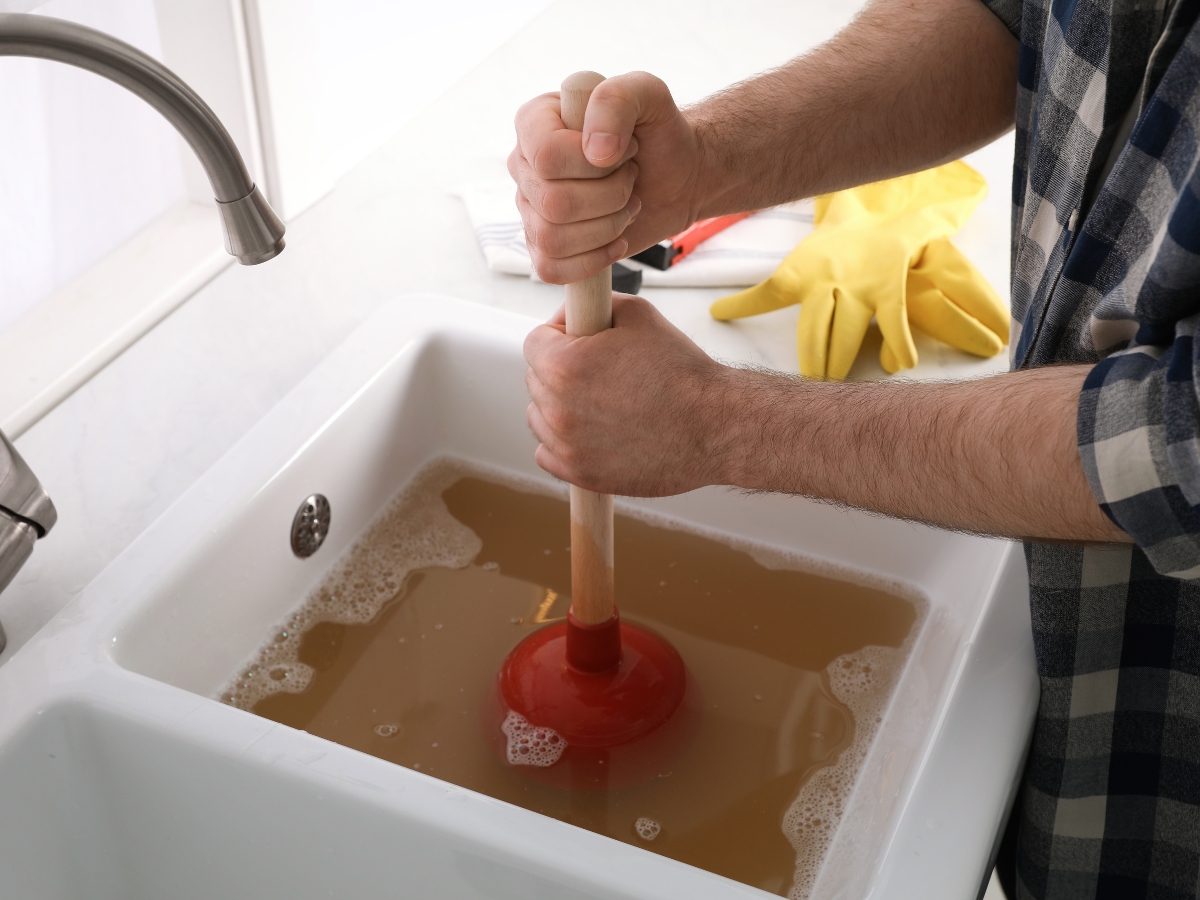
The holiday season brings extra guests, heavier water use, and more stress on your septic system. Recognizing the early signs of septic trouble can prevent backups and protect your home from costly damage. Knowing what to watch for ensures you can take quick action before problems interrupt your celebrations.
How to Recognize Slow Drains, Foul Odors, and Wet Spots
Slow drains in sinks, tubs, or toilets are one of the first signs that your system may be reaching capacity or experiencing a blockage. If water lingers or drains sluggishly, it could indicate a clog or a tank that needs pumping. Gurgling noises from plumbing fixtures often mean air is trapped in the lines, a symptom of restricted flow or backup pressure.
Strong sewage odors indoors or near the drain field are another red flag. These smells usually come from gases escaping through broken seals, clogged vents, or overfilled tanks. Finally, watch for soggy or unusually green patches of grass above the drain field. This often points to wastewater surfacing because the soil can no longer absorb effluent properly.
What Are the Risks of Ignoring Septic System Warning Signs?
Ignoring early symptoms can quickly lead to serious consequences. If slow drains and odors go unchecked, wastewater can back up into sinks, tubs, and toilets, creating unsanitary conditions and costly cleanup. A saturated drain field loses its filtering ability, allowing untreated water to surface or leak into nearby groundwater.
Long-term neglect can also lead to structural damage inside the tank, including cracked baffles and collapsed walls. These repairs often cost thousands of dollars and may require full system replacement. Addressing issues promptly not only avoids emergencies but also helps maintain your system’s efficiency through the busiest season of the year.
When Should You Call for a Professional Septic Inspection?
If you notice a combination of slow drains, persistent odors, or damp soil over the drain field, schedule a professional inspection right away. A technician can check for blockages, evaluate tank levels, and test drain field performance. Acting within 24 to 48 hours of spotting warning signs can prevent backups and reduce the risk of permanent damage.
It’s also wise to have your system inspected before the holidays if you expect a higher number of guests. Routine maintenance, such as pumping and line cleaning, ensures your system can handle the extra load without issue.
The Bottom Line
Catching septic warning signs early is the best way to avoid major disruptions during the holidays. Slow drainage, unpleasant smells, and wet ground should never be ignored. By responding quickly to these indicators and scheduling timely inspections, you can keep your septic system running efficiently and focus on enjoying your holiday gatherings worry-free.
When and How to Access Emergency Septic Services in Acworth During the Holidays
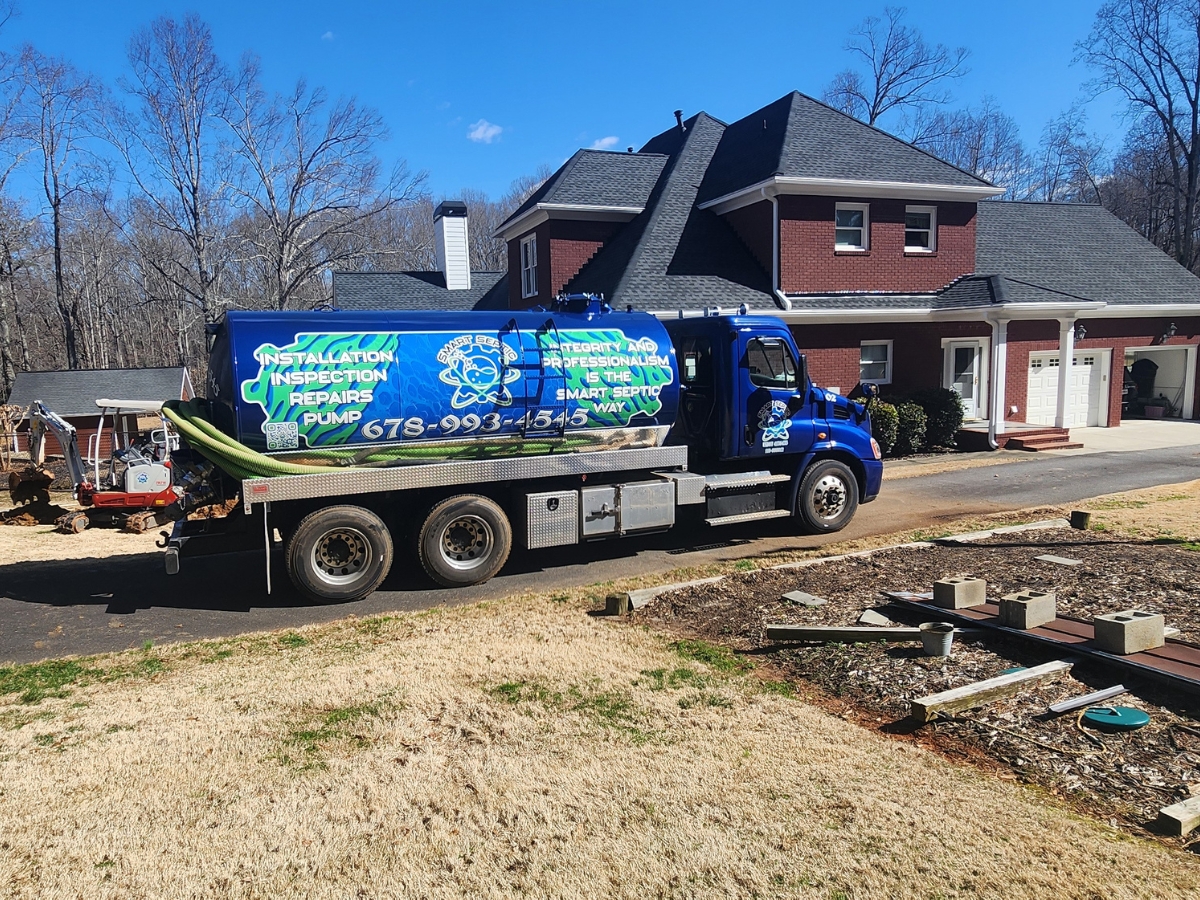
Emergency septic repairs are essential for unexpected system failures that threaten gatherings and household safety. Common holiday emergencies include sudden backups, leaking effluent, and complete drain field saturation. Smart Septic Pros offers 24/7 emergency response in Acworth, GA, with on-call technicians ready to assess and resolve urgent issues. Our rapid-response teams use specialized vacuum trucks and diagnostic cameras to restore flow and protect your home.
What Emergency Septic Repairs Are Common During Holiday Seasons?
Holiday season emergencies often involve full tank overflows caused by increased inflow, clogged distribution pipes from grease or wipes, and drain field collapse due to saturated conditions. Leaking risers or damaged baffles discovered during periods of high usage also require immediate attention to prevent surface discharges. Swift repairs prevent environmental contamination and maintain system function when it matters most.
How Does Smart Septic Pros Provide 24/7 Emergency Service in Acworth?
Smart Septic Pros maintains dedicated on-call crews equipped with vacuum pumping trucks, high-pressure water jetters, and inspection cameras. Our team dispatches within hours of a service request, evaluates the system’s status, clears obstructions or performs temporary bypass pumping, and provides transparent repair recommendations. This commitment to round-the-clock availability ensures Acworth homeowners never face prolonged disruptions during holiday celebrations.
What Should You Expect When Calling for Holiday Septic Emergency Help?
When you request emergency service, a technician will confirm your location in Acworth, diagnose the symptoms over the phone, and provide an estimated arrival time. On-site, they will perform a rapid assessment using inspection cameras, remove blockages or excess effluent, and recommend the next steps—whether that’s pumping, pipe repair, or drain field restoration. Clear communication and upfront pricing offer reassurance and prompt resolution when you need it most.
How Can Long-Term Septic Maintenance Plans Benefit Acworth Homeowners Preparing for the Holidays?

A well-structured septic maintenance plan is one of the best ways to prevent costly or inconvenient problems during the holiday season. These plans typically include regular inspections, timely pumping, small repairs, and drain field evaluations that keep your system running efficiently. For homeowners in Acworth, consistent care is especially valuable during periods of increased household activity when more water and waste enter the system.
A long-term plan ensures that your septic system is always prepared for higher demand. Regular maintenance prevents overflows, reduces odors, and extends the life of your tank and drain field. It also means you can enjoy family gatherings without worrying about slow drains or unexpected backups.
What Does a Comprehensive Septic Maintenance Plan Include?
A complete maintenance plan covers everything from inspections to performance testing. Most systems benefit from two professional inspections each year to assess sludge and scum levels, check for leaks, and ensure that baffles and risers are intact. Scheduled pumping is based on household size, tank capacity, and overall water usage. Technicians also examine distribution boxes and conduct flow tests to confirm that effluent is moving properly through the drain field.
Documenting each visit helps track system performance over time, allowing potential issues to be caught before they become major repairs. This proactive approach keeps your system healthy and eliminates the stress of emergency maintenance during the holidays.
How Often Should You Schedule Maintenance to Avoid Holiday Septic Problems?
For most homes with average use, septic systems should be inspected every 12 to 18 months and pumped every three to four years. Larger households or properties that frequently host guests may need more frequent service. If you expect heavy use during the holidays, it’s smart to schedule an inspection or pumping at least six weeks in advance.
This timing gives technicians the opportunity to address buildup, remove excess sludge, and verify that all components are functioning properly. By preparing early, you can avoid system overloads during the busiest time of the year.
How Does Regular Maintenance Save Money and Prevent Holiday Disruptions?
Routine maintenance saves homeowners money by catching small issues before they lead to major damage. Cracked pipes, misaligned distribution boxes, or clogged filters can often be fixed for a fraction of the cost of full system repairs. Preventive care also preserves the lifespan of your tank and drain field, helping you avoid the high expense of replacement.
A well-maintained septic system runs efficiently, reduces the risk of backups, and ensures that wastewater is properly treated. This means you can enjoy your holiday gatherings without unpleasant surprises or repair emergencies.
Following consistent septic maintenance practices is one of the smartest holiday septic tips for Acworth homeowners. With regular inspections, timely pumpings, and proactive repairs, your system stays dependable through the holidays and beyond. Taking a long-term approach to septic care protects your investment, keeps your property safe, and ensures your celebrations go smoothly year after year.
Conclusion
Preparing your septic system for the holiday rush is just as important as planning your menu. A little proactive care can prevent embarrassing backups and costly emergencies, ensuring your Acworth home is ready to welcome guests with confidence. At Smart Septic Pros, we offer septic inspections and pumping to give you complete peace of mind. Don’t let septic troubles spoil your celebrations—call 678-993-4545 or use our contact form today to schedule your service. Let us handle the dirty work, so you can focus on making memories.
